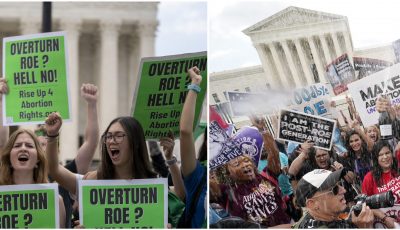Questions on salary hikes placed under advisement
Justices of the CNMI Supreme Court have placed under advisement the certified questions raised about the salary increases that the Legislature had approved for some elected officials.
After listening to arguments last Friday, CNMI Supreme Court Chief Justice Alexandro C. Castro, joined by Associate Justice John A. Manglona and Justice Pro Tem Robert J. Torres Jr. on the appellate court, announced that they are placing the matter under advisement.
The certified questions were raised by both Attorney General Edward Manibusan and Finance Secretary Larrisa Larson.
Office of the Attorney General Civil Division chief Christopher M. Timmons argued as counsel for Manibusan, who was not present. Attorney Matthew T. Gregory argued as counsel for Larson, who was in court.
The Supreme Court accepted two certified questions:
1. Did the presence of four sitting members of the legislature on the advisory commission leading to the enactment of Public Law 19-83 violate Article II, Section II of the NMI Constitution? If so, did the illegal presence of the legislators on the advisory commission render the salaries for the governor, the lieutenant governor, and the legislature in Public Law 19-83 unconstitutional?
2. Were the three salary increases (or any of them) for members of the Legislature unconstitutional because they exceeded the change in an accepted price index for the period since the last change, (or in the case of P.L. 4-32, was not based upon a price index at all); or alternatively, were the three salary increases (or any of them) unconstitutional because they exceeded the respective advisory commission’s salary recommendation?
In Manibusan’s brief, Timmons said the Salary Adjustment Laws challenged in this case violate the checks and balances imposed by the NMI Constitution, including the prohibition against legislators sitting on independent boards or commissions; the prohibition against adjustments of salaries not based upon the recommendation of an advisory commission; and the restriction on increases in salary greater than the change in an accepted price index since the last change.
Accordingly, Timmons said, the Supreme Court should declare unconstitutional the salary hike for lawmakers, the governor, and lieutenant governor.
In Larson’s opposition, attorneys Matthew T. Gregory and Kimberlyn K. King-Hinds said that just because a decision by the Legislature is unpopular does not make it illegal or unconstitutional.
Gregory and King-Hinds said the proper checks and balance for an elected official is to vote him or her out of office.
The lawyers said the CNMI Constitution does not preclude the appointment of legislators to dependent commissions such as the advisory commission in question and only requires that it falls within an accepted composite price index and does not exceed the recommendation of the advisory commission.
Accordingly, Gregory and King-Hinds said, the Supreme Court should declare constitutional the salary adjustments for members of the Legislature, the governor, and lieutenant.
The submission of certified questions arose after Manibusan sued Larson in February 2017. He asked the Superior Court to declare the salary laws unconstitutional.
He sought an injunction to prohibit the salary increases for the governor, lieutenant governor, and members of the Legislature.
Last June, Superior Court Presiding Judge Roberto C. Naraja ruled that Manibusan has legal authority to prosecute his lawsuit against Larson over the salary increases.
After Naraja’s ruling, the parties agreed to stay the matter pending their joint petition for certified question before the high court.
The Legislature passed the law that instituted pay raises for government employees, the governor, lieutenant governor, and members of the Legislature in November 2016.
Gov. Ralph DLG Torres did not sign the bill into law. He neither exercised his veto power. Instead, he allowed P.L.19-83 to lapse into law.



























